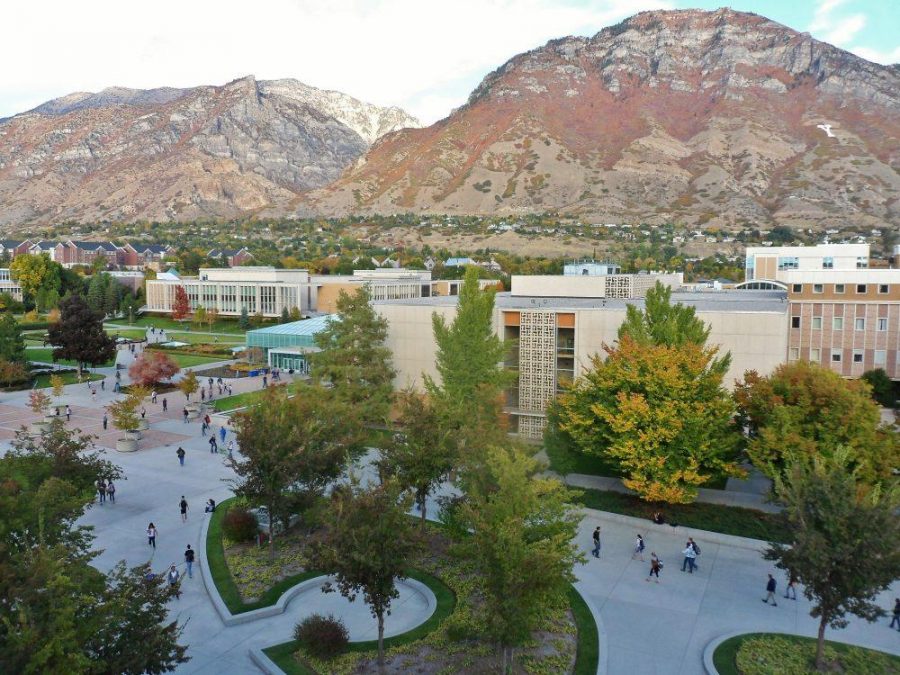Earlier this year, Madi Barney told Provo City police that she’d been raped last September during her sophomore year at Brigham Young University. Since her accused attacker was not a student, she did not report the incident to the school. But BYU did find out, and soon after reporting the incident to police, Barney was notified by the Honor Code Office that she had a hold on her academic record, pending an investigation into the events leading up to her assault.
“I feel almost as violated by the school as I do by my rapist,” Barney told CNN. In response to backlash from these accusations, BYU launched a website allowing students and community members to provide feedback “on matters relating to sexual assault.” But a website is not enough. If BYU takes sexual assault seriously — which it claims to — the school should consider approaching the issue more explicitly and directly.
Barney was put on trial for being sexually assaulted or, more specically, for reporting her assault to police. BYU spokespersons initially denied her allegations, claiming firmly that students would not be referred to the Honor Code Office for reporting an assault. The school has since backpedaled, however, and released a statement that acknowledges a possible conflict between the Honor Code and Title IX offices.
Since Barney first went public with her story, more than two dozen students have come forward with stories of their own, many of which are strikingly similar. Margot Crandall, who was raped in 2014 during her junior year at BYU, said fear of punishment from BYU was a primary concern when she reported the incident to police. “I was scared of BYU finding out,” Crandall said. “I felt really shameful about it.”
These stories have prompted a wide-spread conversation about the Honor Code, including detailed, thorough and hard-hitting coverage from institutions like The New York Times, TIME Magazine and The Guardian. Additionally, as of May 27, Barney’s online petition urging BYU to address the controversy has received around 115,000 signatures, with signees from across the world, from Provo, to Puerto Rico, to South Africa. Both the media and the public have demonstrated hostility, disdain and disapproval towards BYU’s treatment of sexual assault victims, which makes BYU’s passive response all the more perplexing.
“It’s not a perception. It’s something that is actually happening,” Barney said. “They need to take accountability. They need to say, ‘Yeah, we screwed up, but we’re going to fix it.’”
When confronted by protesters, academic vice president Brent Webb told the crowd of over a hundred people that BYU was committed to “study [the] issue.” Language matters here, and Webb’s language indicates a hesitation to acknowledge that there is even a problem in the first place. BYU’s ambiguous rhetoric indicates that the school may be more concerned with saving face than it is with protecting students. This is in conflict with the virtually unquestionable modern-day belief that schools, whether K-12 or higher education, should be safe, warm and welcoming places for students. BYU’s recently launched website even states that the school intends “to foster a safe, respectful campus climate” for students.
There may also be a special need for this kind of safe space in Provo, as demonstrated by the actions of Utah County Sheriff’s Deputy Edwin Randolph, who upon learning of Barney’s case, contacted BYU and informed them of a possible Honor Code infraction. Randolph was skeptical of Barney’s claims, going as far as telling a detective that he thought her allegations were “bull crap” during an interview. BYU students may have reason to feel unprotected or unrepresented by the police force enlisted to protect and serve the Provo community.
Barney supports adding an amnesty clause to the Honor Code. An amnesty clause would exempt students from disciplinary action for violating the Honor Code during extenuating circumstances (such as being sexually assaulted). This would likely make students feel more comfortable in reporting an attack. Underreporting is already a problem at BYU, as demonstrated by the school’s claim that zero sexual assaults occurred in 2011, a statistic that indicates a lack of reporting more than an absence of assault. Sending a clear message to students that they wouldn’t be punished for reporting an assault would show students that BYU cares, and that the school is uninterested in petty infractions in light of more pressing concerns. “Do you want to remove violent predators from your campus, or do you want to penalize victims for minor violations?” Barney said to The Salt Lake Tribune.
BYU should get serious about addressing sexual assault, even if it means changing the rules.


